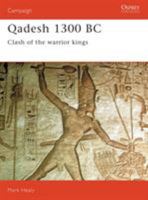Jesús: el hombre que desafió al mundo y confronta tu vida (Spanish Edition)
Select Format
Select Condition 
Book Overview
Qui?n es Jes?s? Conoces a Jes?s? Qu? significa ser un disc?pulo de Jes?s? Este libro fue escrito para responder preguntas sobre la persona, la vida y el mensaje de Cristo Jes?s. Jes?s cambi? para siempre la historia de la humanidad. Su vida marc? un antes y un despu?s. Jes?s ha conmovido los cimientos de la historia del ser humano.
En medio de una sociedad cada vez m?s contraria a la fe cristiana, el pastor Miguel N??ez presenta de manera clara y convincente por qu? es importante conocer la vida de aquel que transform? la historia de la humanidad. Est? basado en teolog?a b?blica s?lida y ha sido escrito de forma clara y concisa. Te ayudar? a:
- Comprender el car?cter y el prop?sito de Jes?s
- Darle a Jes?s el lugar que le corresponde en su vida
- Enriquecer su vida y su relaci?n con ?l
- Encaminar a otros hacia Jes?s Jesus Who is Jesus? What does being a disciple of Jesus means? This book was written to answer questions about the person, the life and message of Jesus Christ. Based on sound biblical theology and written in a concise and clear manner. It will help you to:
- Understand the character and purpose of Jesus
- Give Jesus his rightful place in your life
- Enrich your life and your relationship with Him
- Lead others to Jesus
En medio de una sociedad cada vez m?s contraria a la fe cristiana, el pastor Miguel N??ez presenta de manera clara y convincente por qu? es importante conocer la vida de aquel que transform? la historia de la humanidad. Est? basado en teolog?a b?blica s?lida y ha sido escrito de forma clara y concisa. Te ayudar? a:
- Comprender el car?cter y el prop?sito de Jes?s
- Darle a Jes?s el lugar que le corresponde en su vida
- Enriquecer su vida y su relaci?n con ?l
- Encaminar a otros hacia Jes?s Jesus Who is Jesus? What does being a disciple of Jesus means? This book was written to answer questions about the person, the life and message of Jesus Christ. Based on sound biblical theology and written in a concise and clear manner. It will help you to:
- Understand the character and purpose of Jesus
- Give Jesus his rightful place in your life
- Enrich your life and your relationship with Him
- Lead others to Jesus
Format:Paperback
Language:Spanish
ISBN:1462792685
ISBN13:9781462792689
Release Date:February 2018
Publisher:B&H Espanol
Length:272 Pages
Weight:0.66 lbs.
Dimensions:0.8" x 5.5" x 8.4"
Customer Reviews
6 customer ratings | 5 reviews
There are currently no reviews. Be the first to review this work.










![Paperback Jesús: El Hombre Que Desafió Al Mundo Y Confronta Tu Vida [Spanish] Book](https://i.thriftbooks.com/api/imagehandler/m/F9D21D8832795CD8F4F504A1B658E3B6FDF4A023.jpeg)
































